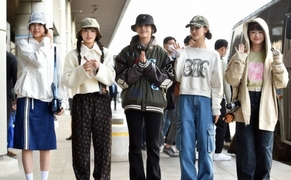 |
AsiaToday reporter Lee Chul-hyun
Monthly rent for homes out of all rental transactions in Seoul reached an all-time high. As the demand for monthly rent – “wolse” in Korean – increases, the wolse price is also on a steep rise.
Amid soaring house prices, more owners turned their properties to wolse instead of jeonse, the uniquely Korean way of leasing property based on lump-sum deposits, putting more rent burdens on tenants. “As landlords shifted the increased ownership tax to tenants amid the unstable jeonse market, more people are now forced to pay monthly rents,” said Park Won-gap, a senior real estate analyst at KB Kookmin Bank.
According to the Seoul Real Estate Information Plaza on Wednesday, 14,379 apartment rental contracts were traded in Seoul in December last year. Among them, 6,067 transactions were made for wolse, quasi-wolse, and quasi-jeonse, accounting for 42.1 percent. This is the highest level since 2011 when related statistics began to be compiled.
The proportion of wolse transactions for apartments in Seoul has remained at the 20 percent level until the first half of 2020. Analysts say the lease law that took effect in July 2020 has largely contributed to the sharp increase of wolse. The lease law requires tenants to use the right the renew the contract, so even if they sign a two-year contract, they still can keep the contract for up to four years, and the rent cannot be increased by more than 5 percent. Low profits have caused landlords to favor monthly payments that they can receive in cash instead of lump sums that they can deposit in banks. With the rising jeonse prices after the enactment of the lease law, many tenants who could not afford jeonse were now forced to pay monthly rent.
Besides, it became virtually impossible for low-income households to find jeonse as the financial authorities blocked the loan for jeonse due to the strengthening of household debt management, which affected the increase in monthly rent. “As the loans are blocked, some tenants who are short of jeonse fund suggest a reverse tax transaction by paying the monthly rent first,” a real estate agent in Aheyon-dong said. “Owners prefer monthly rent since it is impossible for them to raise the jeonse price due to the lease law while the deposit interest rate is low,” the agent added.
As the demand for wolse increased, the price has also increased. According to statistics from the Korea Real Estate Agency, the average monthly rent for an apartment in Seoul was 1,245,000 won last month. This is an increase of 75,000 won compared to July last year, right after the comprehensive real estate tax was levied, indicating that landlords have passed the tax burden to tenants.
Experts say wolse properties will increase significantly starting this summer because the contract renewal claim right begins to expire in August. In this case, a landlord can raise the jeonse or wolse price without any restrictions if it signs a new contract. Besides, owners are highly likely to turn the existing jeonse to wolse as the property tax would rise due to the increased posted prices.
#wolse #jeonse #tenant
Copyright by Asiatoday
Most Read
-
1
-
2
-
3
-
4
-
5
-
6
-
7





















